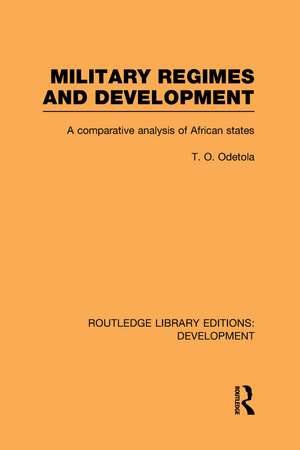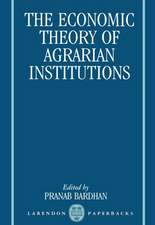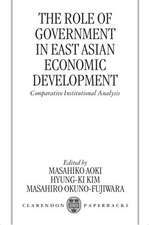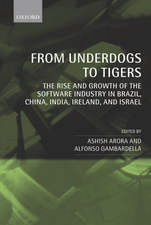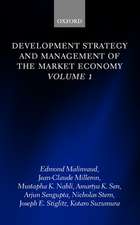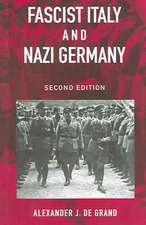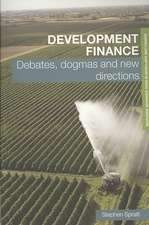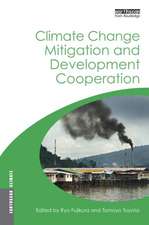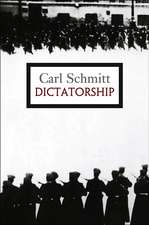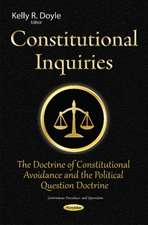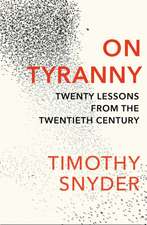Military Regimes and Development: A Comparative Analysis in African Societies: Routledge Library Editions: Development
Autor Olatunde Odetolaen Limba Engleză Hardback – 26 noi 2010
| Toate formatele și edițiile | Preț | Express |
|---|---|---|
| Paperback (1) | 447.17 lei 6-8 săpt. | |
| Taylor & Francis – 11 mar 2013 | 447.17 lei 6-8 săpt. | |
| Hardback (1) | 765.95 lei 6-8 săpt. | |
| Taylor & Francis – 26 noi 2010 | 765.95 lei 6-8 săpt. |
Din seria Routledge Library Editions: Development
- 34%
 Preț: 823.99 lei
Preț: 823.99 lei - 34%
 Preț: 993.32 lei
Preț: 993.32 lei - 33%
 Preț: 528.32 lei
Preț: 528.32 lei - 36%
 Preț: 822.01 lei
Preț: 822.01 lei - 34%
 Preț: 765.95 lei
Preț: 765.95 lei - 38%
 Preț: 765.23 lei
Preț: 765.23 lei - 18%
 Preț: 1169.03 lei
Preț: 1169.03 lei - 34%
 Preț: 762.72 lei
Preț: 762.72 lei - 36%
 Preț: 823.99 lei
Preț: 823.99 lei - 34%
 Preț: 824.17 lei
Preț: 824.17 lei - 36%
 Preț: 824.89 lei
Preț: 824.89 lei - 34%
 Preț: 823.63 lei
Preț: 823.63 lei - 34%
 Preț: 765.95 lei
Preț: 765.95 lei - 34%
 Preț: 852.88 lei
Preț: 852.88 lei - 18%
 Preț: 1059.93 lei
Preț: 1059.93 lei -
 Preț: 372.29 lei
Preț: 372.29 lei - 18%
 Preț: 997.45 lei
Preț: 997.45 lei - 25%
 Preț: 243.12 lei
Preț: 243.12 lei - 34%
 Preț: 763.07 lei
Preț: 763.07 lei - 34%
 Preț: 766.12 lei
Preț: 766.12 lei - 34%
 Preț: 824.89 lei
Preț: 824.89 lei - 18%
 Preț: 1056.63 lei
Preț: 1056.63 lei - 34%
 Preț: 850.02 lei
Preț: 850.02 lei - 34%
 Preț: 765.40 lei
Preț: 765.40 lei - 34%
 Preț: 853.07 lei
Preț: 853.07 lei - 37%
 Preț: 1977.58 lei
Preț: 1977.58 lei - 34%
 Preț: 850.73 lei
Preț: 850.73 lei - 27%
 Preț: 263.97 lei
Preț: 263.97 lei - 34%
 Preț: 822.01 lei
Preț: 822.01 lei - 20%
 Preț: 325.33 lei
Preț: 325.33 lei - 34%
 Preț: 821.82 lei
Preț: 821.82 lei - 18%
 Preț: 1059.62 lei
Preț: 1059.62 lei - 25%
 Preț: 249.56 lei
Preț: 249.56 lei - 34%
 Preț: 824.34 lei
Preț: 824.34 lei - 34%
 Preț: 825.78 lei
Preț: 825.78 lei - 34%
 Preț: 996.03 lei
Preț: 996.03 lei - 18%
 Preț: 1060.56 lei
Preț: 1060.56 lei - 21%
 Preț: 320.94 lei
Preț: 320.94 lei - 34%
 Preț: 485.19 lei
Preț: 485.19 lei - 34%
 Preț: 824.34 lei
Preț: 824.34 lei - 25%
 Preț: 242.71 lei
Preț: 242.71 lei - 34%
 Preț: 764.34 lei
Preț: 764.34 lei - 24%
 Preț: 279.12 lei
Preț: 279.12 lei -
 Preț: 399.87 lei
Preț: 399.87 lei - 33%
 Preț: 530.66 lei
Preț: 530.66 lei - 34%
 Preț: 851.46 lei
Preț: 851.46 lei - 18%
 Preț: 1056.00 lei
Preț: 1056.00 lei - 34%
 Preț: 762.36 lei
Preț: 762.36 lei - 34%
 Preț: 679.23 lei
Preț: 679.23 lei
Preț: 765.95 lei
Preț vechi: 1155.61 lei
-34% Nou
Puncte Express: 1149
Preț estimativ în valută:
146.56€ • 153.46$ • 121.57£
146.56€ • 153.46$ • 121.57£
Carte tipărită la comandă
Livrare economică 10-24 aprilie
Preluare comenzi: 021 569.72.76
Specificații
ISBN-13: 9780415601849
ISBN-10: 0415601843
Pagini: 210
Dimensiuni: 156 x 234 mm
Greutate: 0.55 kg
Ediția:1
Editura: Taylor & Francis
Colecția Routledge
Seria Routledge Library Editions: Development
Locul publicării:Oxford, United Kingdom
ISBN-10: 0415601843
Pagini: 210
Dimensiuni: 156 x 234 mm
Greutate: 0.55 kg
Ediția:1
Editura: Taylor & Francis
Colecția Routledge
Seria Routledge Library Editions: Development
Locul publicării:Oxford, United Kingdom
Cuprins
1. Military Regimes and Development: Contrasting Viewpoints 2. Military Organisational Values and Skills as Modernising Instruments 3. Military and Social Classes 4. Military Nationalism and State Power 5. The Military and National Economy 6. Military Regimes and Political Change 7. Military Regimes, Social Policy and Planning 8. Conclusions
Descriere
First published in 1982, this book aims to examine the role that ruling military governments have played in African development. Dr Odetola discusses military organisational values and skills in modernisation and argues that the evocation and application of these values and skills depends on the character of the leadership of individual ruling juntas, their degree of professional training, proximity to civilian society and so on. He also investigates the relationship between the ruling military and existing social classes.
